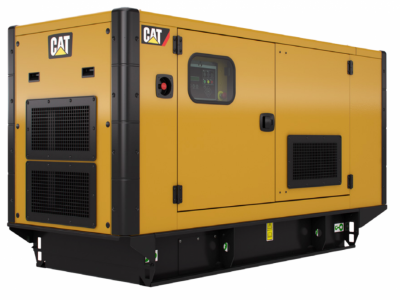You don’t even know where to start looking for an electric generator for your home? If this is your case, read the following recommendations carefully.
In the 21st century, every house must have an electric generator, so we will avoid running out of electricity in case the main network fails for whatever reasons.

Now, it is not easy to know which electric generator to choose for a house. There are some very important factors to take into account what size generator should I buy
1. Power
You must be very clear about how much equipment you want to supply with the generator (or generator set, as you prefer to call it) and what is the consumption of each of them (you have to check the watts they use).
When making the sum, you must consider that some computers at the time of turning on use up to three times the normal consumption.
This is the case of refrigerators for example since they use approximately 400W regularly but when they are turned on they use up to three times that consumption. This is called the “Starting Peak”.
2. Type of Use: Backup or Continuous Use?
Depending on how many hours a day you will need to run the generator, you have to check if it is backup or continuous use.
In general, the equipment that has up to 10 kVA of power are backup generators, that is, they can only be used for a maximum of 4 to 5 hours at a time.
Before reusing them, the engine must be given at least one hour of rest. In case you want a generator that can work without having to stop it, you will need a generator for continuous use. These generators are bigger and more expensive.
Read Also :
3. Fuel: Gasoline, Diesel or Gas
Gasoline generators generally range from 1 to 10 kW. They are mostly used for residential use, for sporadic power outages, where fuel costs are not that high.
It should be remembered that the liter of diesel is cheaper.
Diesel generators, for their part, range from 4 kVA upwards, reaching powers such as 2,000 kW or more. They are used for both domestic and industrial purposes and there are single-phase or three-phase versions.
Although in Chile these generators are a little more expensive than gasoline ones, in the long run, they are a good investment.
Lastly, there are gas generators. These teams standout for making much less noise and for emitting fewer polluting emissions than other types of fuel. They can be used with natural gas or liquefied gas.
Having a gas bottle, instead of storing liquid fuel at home, is a safer option that many prefer.
4. Single-Phase or Three-phase
When buying a generator, you must be clear if the equipment you want to supply energy is single-phase (current at 220 Volt) or three-phase (current at 380 Volt). In general, houses have single-phase current while in industries three-phase energy is used.
5. Noise Level
Depending on the place where the generator is to be installed, it will be very important to pay attention to the number of decibels emitted by the equipment.
If the generator set will be near a room, it can be quite unpleasant to have it running. That is why on the market there are “open” type generators that are louder and others “soundproof”, which thanks to the fact that they come inside a cabinet, the noise they emit is lower (in any case it will generate noise but this will be much lower than what it would generate if it were opened).
6. Automatic Ignition on Power Outage?
If you want the generator to start working automatically when there is a power outage, you must make sure that the equipment you are buying has the possibility of connecting to an automatic transfer board (ATS).
When this board realizes that there is a power cut, it will send a signal to the generator set to turn on. When the utility power returns, the board will send the reverse signal to turn off the generator, which will return the house to normal operation.
Not all equipment is ATS compatible so it is very important to consult it before making the purchase.
7. Mobility
Depending on the type of use you give the generator, you must see how easy it is to move the equipment from one point to another. Some generators are very light and can be lifted with just one hand, while others, with greater power, can only be moved if you have a forklift.
Now a lot of equipment for home use has wheels, which helps a lot when moving.
What Electric Generator Do You Need at Home?
In our daily lives, we are probably more dependent on the continuous flow of electricity than we are aware of. Spending a few hours without electricity can be annoying, but spending days or weeks like that can cost us a very high price and can even endanger our lives.
In addition to wasting food, a normal power outage can mean winter without heating or summer without air conditioning, causing flooding, leaving a security system inoperative, or even a business.
All of these are good reasons to consider purchasing a backup power source for domestic use. With a quick search on electric generators for home use on the internet, you can find models for sale for a price that can range from € 80 to thousands of euros.
What model do you need to avoid electrical system outages? In this guide, you will find practical information to buy the most suitable system for your home
Generator Models for Domestic Use
You probably already know that there are two basic models of electric generators: stationary and portable. Both include two main components: an engine and an alternator.
Unfortunately, the large number of guides and articles available do not always emphasize enough the advantages and disadvantages of these types of electric generators, therefore, we will start by explaining the basic information a little.
Fixed electric generators are permanently connected to the house wiring through a device called a transfer switch and coupled to a fuel source (in normal conditions it is the same as that used for heating: natural gas, propane, or diesel).
Its power ranges between 6 kilowatts and tens of kilowatts, therefore, you can always choose the right model that supplies electricity to your entire house, including the air conditioning, the sump pump, among others.
In an automatic mode, this system will activate only when it detects a power failure and will stop when nominal power is restored.
Portable electric generators range from 1,000 W to 17,500 W. When you need to use a portable electric generator, you have to take it out of the warehouse, turn it on manually and connect it to your equipment.
There are no portable devices that turn on themselves. Gasoline and diesel-electric generators come with a fuel tank, while propane electric generators have to be connected to an external LPG (liquefied gas) tank.
Devices that already contain a tank require frequent refueling, depending on the load, the operating period can vary from 5 to 8 hours per tank.
Both stationary electric generators and portable electric generators can only operate outdoors. A fixed electric generator is left outside just like an air conditioning unit. A portable electric generator is best connected only when necessary.









